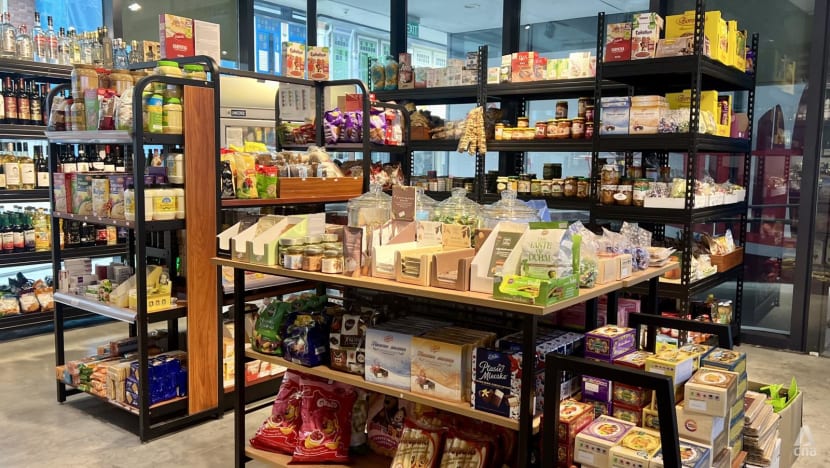SINGAPORE: On a Friday morning earlier this month, Ryan’s Grocery founder Wendy Foo gestures to a video of free-roaming pigs at the store’s entrance.
“My animals are happy animals, very happy animals,” she said. “Even the killing is non-suffering.”
That ethos underpins Ryan’s Grocery’s focus on organic meat and allergen-free products – an approach that has earned it a loyal following at its Great World outlet.
“A lot of regulars and those who are experts in eating good quality meat, they know what they want,” Ms Foo said.
Ryan’s Grocery is part of a growing number of gourmet grocers carving out a niche in Singapore’s competitive supermarket scene. These stores cater to a rising demographic of consumers seeking premium, carefully curated offerings – an appetite that has grown amid major shifts in the broader retail landscape.
In March, DFI Retail Group announced the S$125 million (US$97 million) sale of its Cold Storage and Giant outlets to Malaysian retailer Macrovalue. The deal included 48 Cold Storage and 41 Giant stores, along with two distribution centres.
But the sale is not a sign of a shrinking supermarket industry in Singapore. Instead, it reflects a shift in strategy to connect with a changing customer base, said Professor Lawrence Loh from the National University of Singapore.
With an ageing population, supermarkets are now targeting younger consumers, said the professor of strategy and policy.
“These are the people that are now beginning to have a career, beginning to form families, so the new demand will have to come (from) them,” he added.
A HEALTH-CONSCIOUS GENERATION
When Little Farms launched its first outlet in 2016, the emphasis on “fresh and healthy” was still emerging, CEO Joe Stevens told CNA.
“As people get more educated, as people get kind of more affluent, they increasingly make that connection between what they’re eating today and their long-term health,” he said.
Today, Little Farms operates seven outlets, with an eighth set to open in July. Its fastest-growing customer segment? Young, affluent Singaporeans.
When CNA visited a Little Farms outlet at Valley Point on a Friday evening, a mix of expatriates and young locals browsed the aisles. Among them was Ms Charlene Zhu, a 35-year-old researcher in the food industry. She shops there almost daily, often picking up specialty dips and cheeses.
“The first thing I would do is look at the labels and then price, of course,” Ms Zhu said. But ultimately, the healthiness and taste of the product still play a bigger factor, she added.
This attention to quality is central to Little Farms’ identity. Sometimes it takes “as little as 24 hours between the time of harvest and when the produce is sitting on the shelves for customers”, said Mr Stevens.

MORE “SUPER” THAN “MARKET”
Other gourmet grocers have chosen even narrower niches to stand out. In 2022, Ms Anna Jaeger rebranded Eastern European grocer Bublik to Anna’s Gourmet, with a focus on Central and Eastern European products not found elsewhere in Singapore.
She didn’t want to “compete with the bigger guys in the market”, said the 46-year-old Azerbaijan native.
“That niche makes it much more exciting for everyone, of course, for Eastern, Central European people because it’s coming from their home,” she said. “But for locals, it’s even more so because they explore and find something new.”
That strategy appears to be working. Her cold-smoked Atlantic mackerel went viral on TikTok after a few local customers posted about it, and Singaporeans now make up 40 per cent of her customers – up…
Loading PerspectiveSplit analysis...









